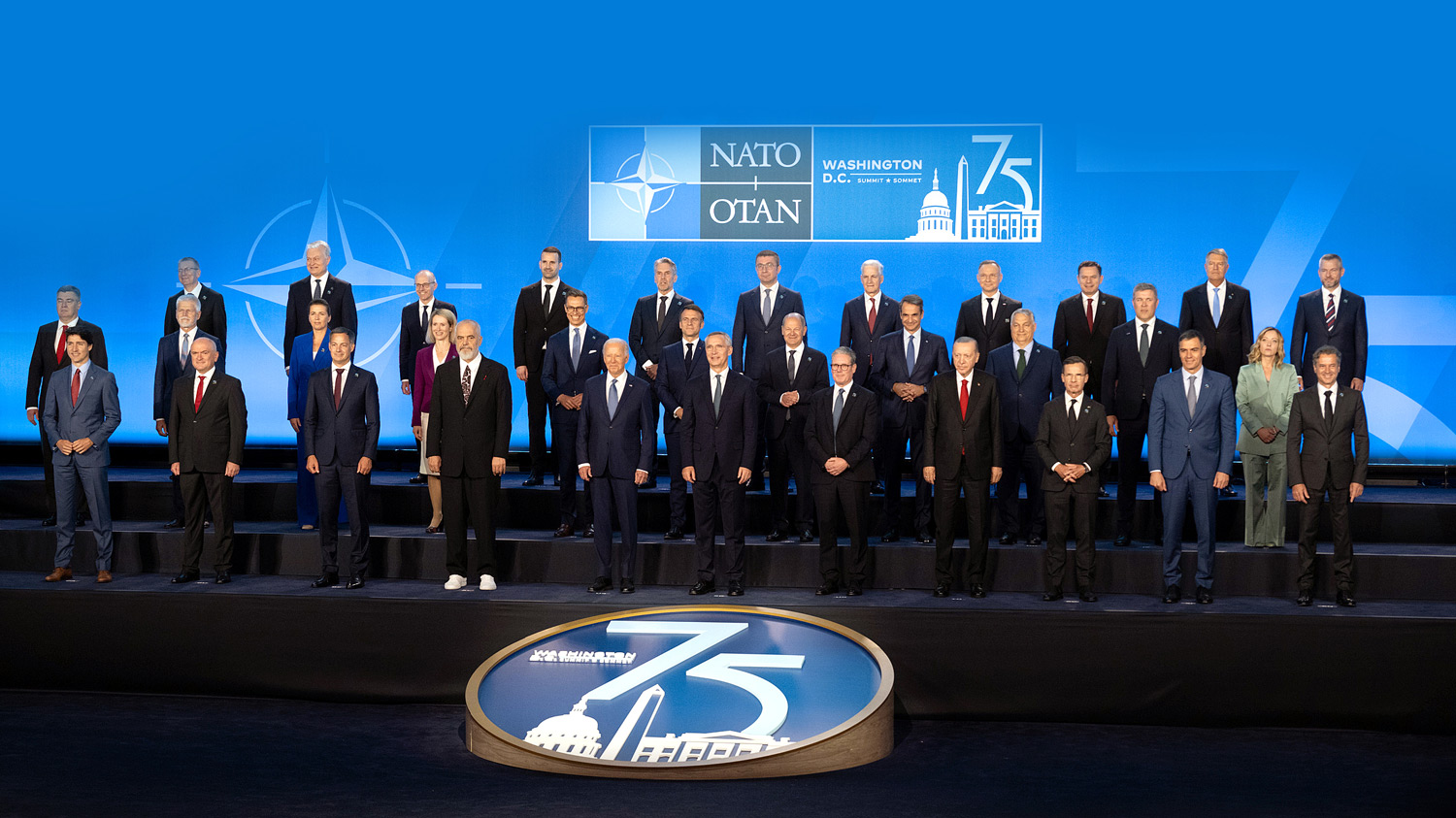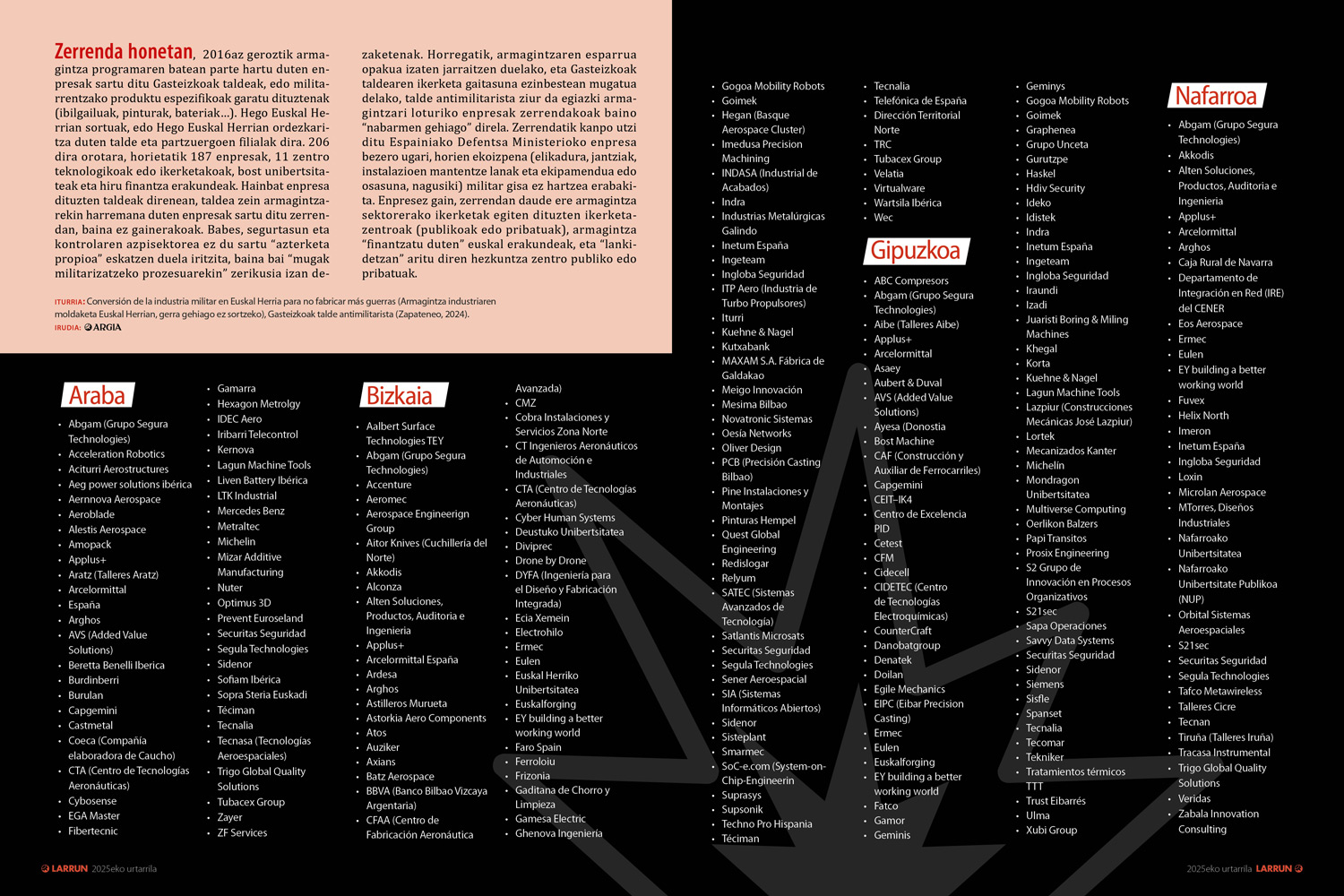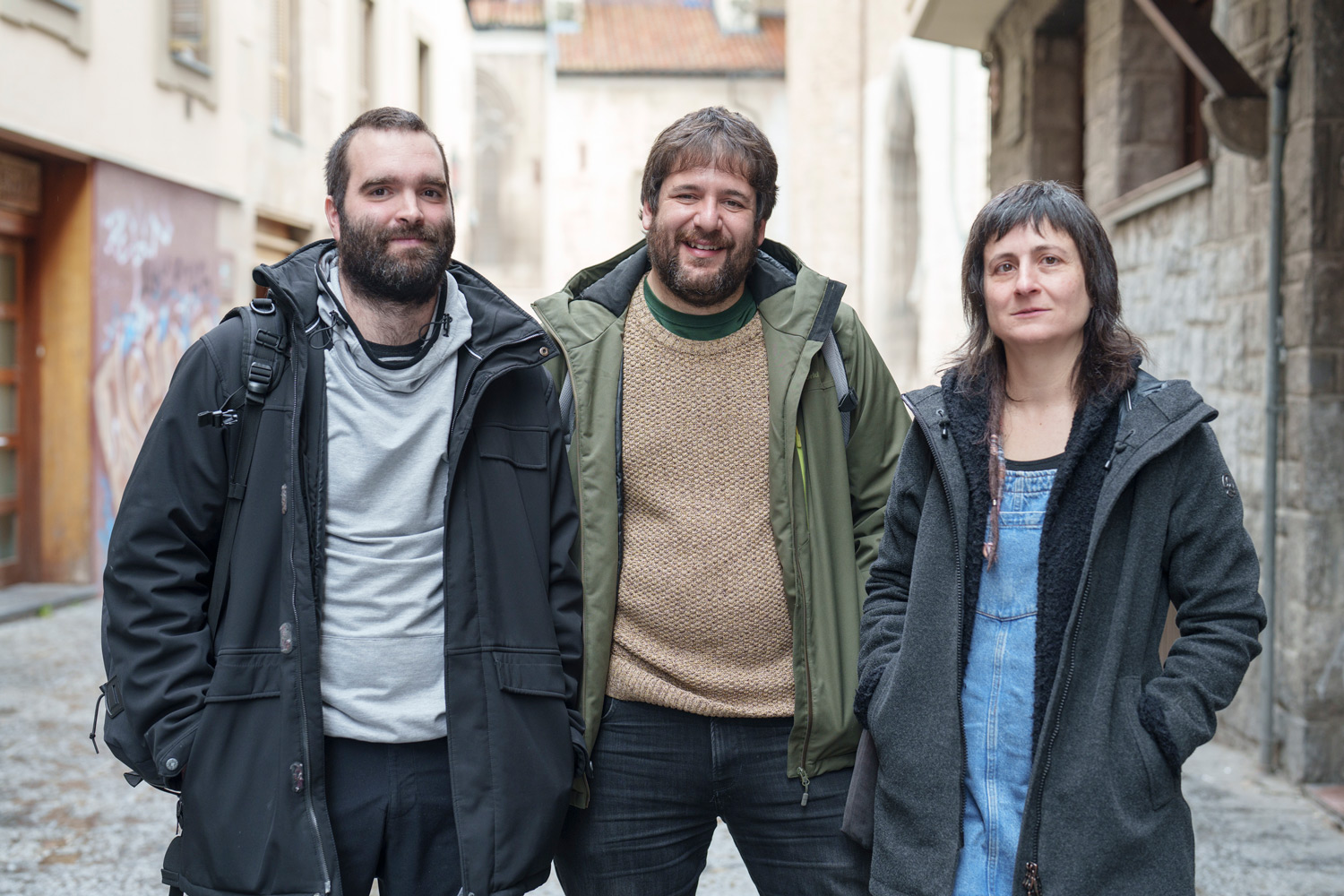Companies and institutions related to the arms industry tripled in Hego Euskal Herria since 2008
In 2008, Vitoria detected 70 “companies, centres or institutions” related to the armero sector, which involved a thorough analysis of the anti-militarist group, which identified nearly 210 in its new research in 2024, and which is convinced that there is more. One of the most outstanding contents of the recently presented Variant of the military industry in Euskal Herria not to build more wars (The adaptation of the arms industry in Euskal Herria not to create more wars), but not the only one. The group has analysed the rise of the arms industry and militarism in Europe and in Basque society in general. To cope with this, it has proposed a “transformative adaptation” of the whole tree sector, carried out in cooperation with the trade unions and workers in the sector, as well as with the citizens and grass-roots movements.
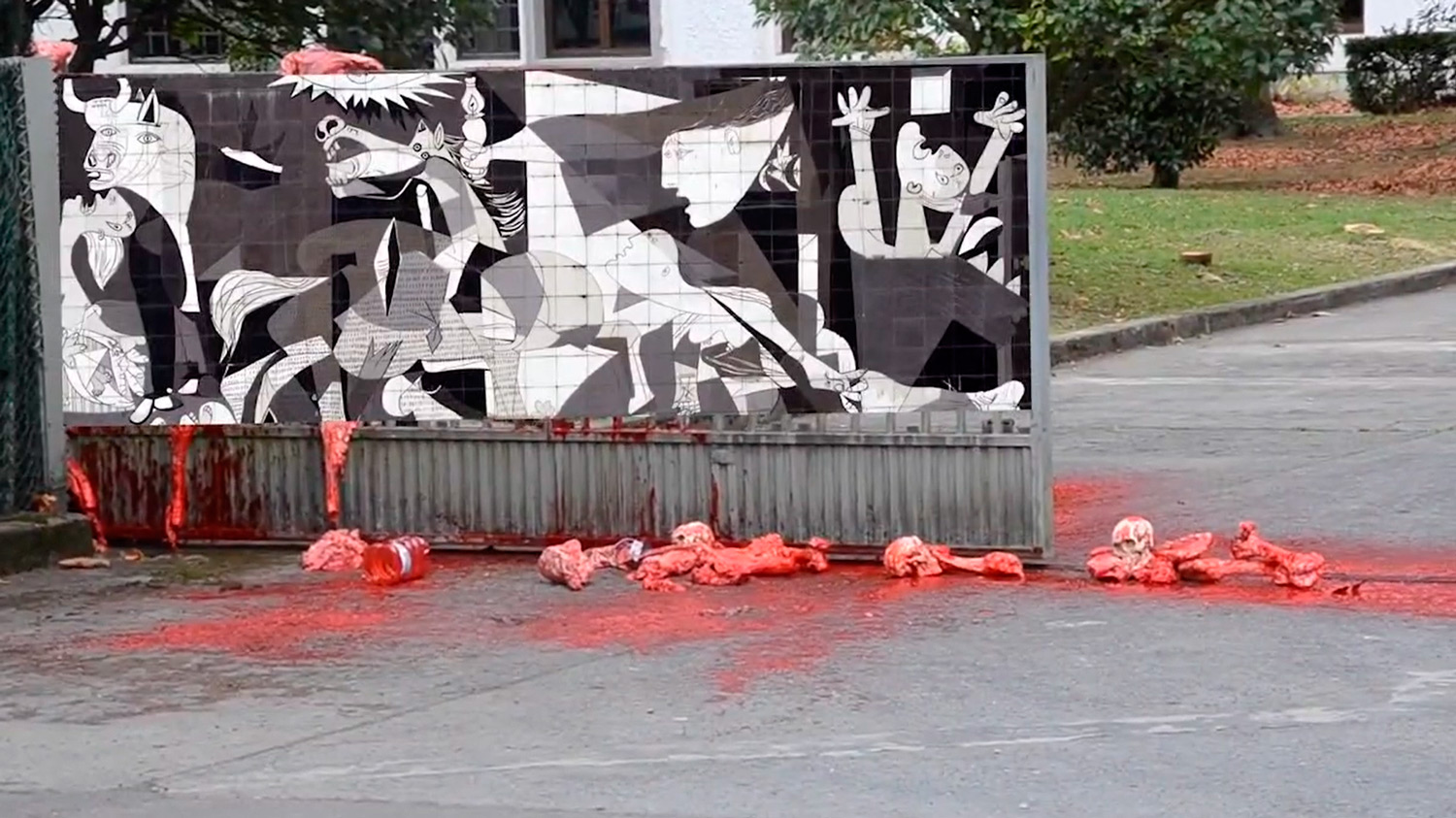
The first presentation of the book was held last Wednesday by members of the Gasteiztarra antimilitarist group, ‘at home’ and among friends, at the Zapateneo Cultural Center, where the meetings are held and has been edited by Zapateneo. The official presentation, on the other hand, took place last Saturday in Donostia-San Sebastián, organized by several anti-militarist groups in the Basque Country. New show to the Plaza de Pamplona! At the Community centre, on Tuesday, 17 December.
It's a great book, both in number and in content, though it's written with a lot of irony. As explained in the introduction, the original objective of the book was not to renew the research in the arms manufacturing sector that was carried out in 2008, but, as the title suggests, to make a proposal for the adaptation of the industry in the sector.
The book wants to break with “a false idea they want to impose on us”: “The adaptation of the arms industry is impossible, has never been achieved and will never be produced”
“Transformative adaptation” so that wars do not start here
The book seeks to break “a false idea that they want to impose on us”: “The adaptation of the arms industry is impossible, it will never be achieved and it will never be achieved.” To do this, the work gathers, among other things, the experiences of adaptation around the world and in different historical periods, analyzing in depth what is referent in the world: In the years 1970-80, the British armory company Lucas Aerospace, “in which the workers [thousands] were able to develop 150 civilian products that, if military production is abandoned, could be produced in these buildings”. These new products would have a social utility, cover the needs and aspirations that the neighbors themselves have determined, and the work process would be constructed in an organized manner “questioning the productive system itself”.
Almost half a century has passed since that project was not finally implemented, but in recent years there has been a proliferation of initiatives to adapt the arms industry and the struggle of the workers in Lucas remains a global reference.
In the fifth and final chapter of the book, Vitoria shows us the look at the Basque Country and the adaptation of the arms industry. After reviewing the initiatives and speeches that have existed in this line, the anti-militarist group makes a global but at the same time quite concrete proposal, “a giant boom”: to promote adaptation by turning unions and workers (at least a significant number of them) into allies; with the participation of the peoples in which the industry is based; and with the leading role of popular movements. All of this, of course, “so that wars do not start here”, but also to respond to other serious situations such as the energy crisis, the depletion of raw materials or the climate emergency.
The anti-militarist group recognizes that the objective is difficult to achieve, but insists that it is more feasible than is believed, and for this purpose, the book collects the statements of the unions ELA, LAB, Steilas and ESK on this issue. More importantly: as anti-militarist sources have explained to ARGIA, the first meetings between anti-militarist groups and these unions have been held to begin talking about the adaptation of the arms industry in the last year. ARGIA will dedicate the January LARRUN monograph to the subject.
Through extensive documentation work, the boom of the arms industry and militarism in Europe in recent years is analysed, showing the links between various elements.
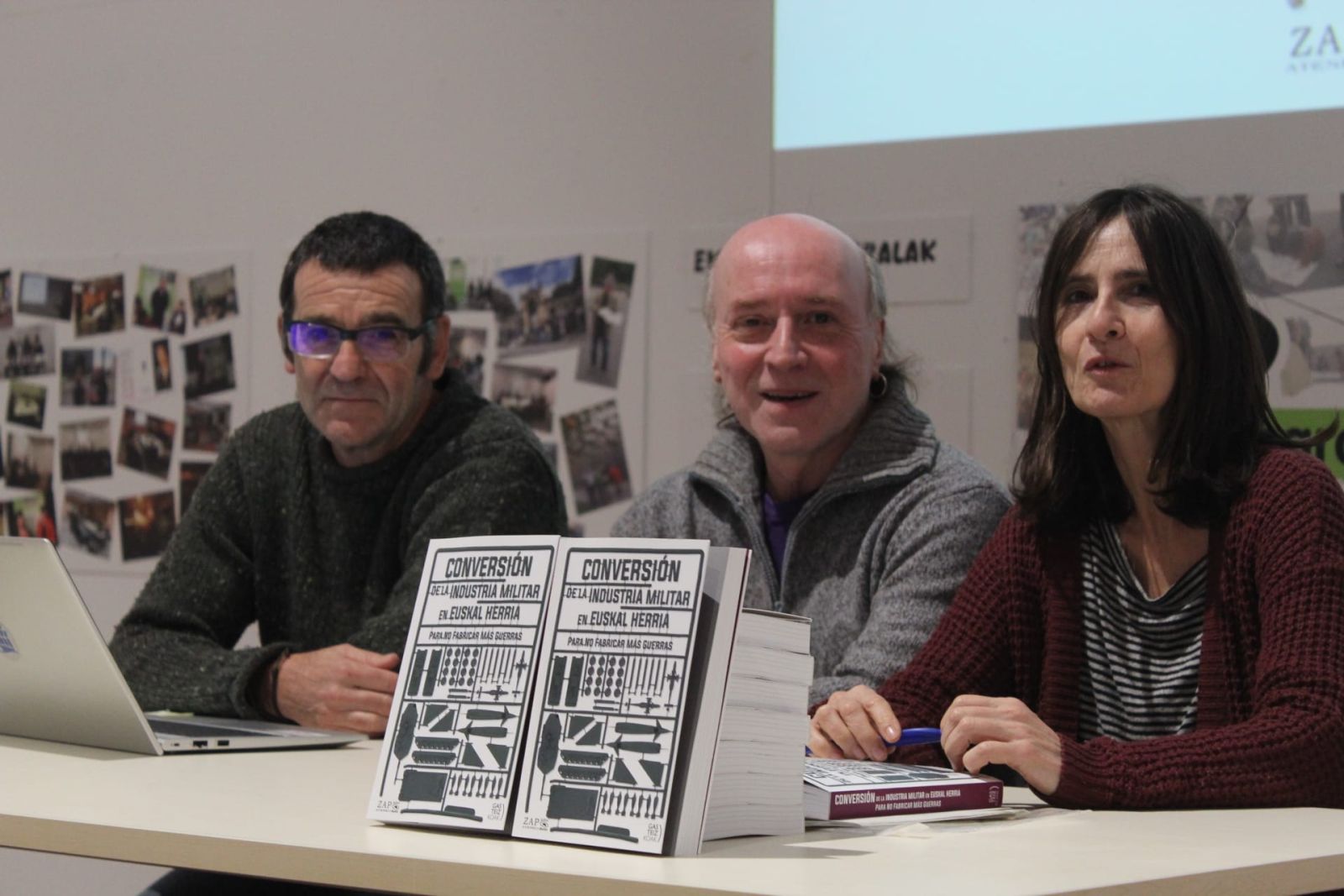
The noises of war in Europe, the noise of money in the armero sector
War is coming! The first part of the book is called this. Through extensive documentation work, the boom in armaments and militarism in Europe in recent years is analyzed, showing connections between the lobby work of the arms industry in the United States and Europe, the European submission to the interests of the United States, the fear messages of Borrell or Von der Layen, or the transformations of European regulations and budgets for war. The latest achievement of this militaristic auzolan is, for example, the recently adopted European Defence Industrial Strategy in March 2024, according to which EUR 1.5 billion will be allocated from the European Union budget in the years 2025 and 2027 to improve the ‘competitiveness’ of the arms industry. Everything points to the fact that the European and Basque arms industry will continue to grow.
All this and its historical background make very reassuring predictions about the immediate future, as it suggests that capitalism can promote a large-scale war in Europe.
The Basque merchants of death, in the foam
The second, third and fourth issue of the book analyzes the arms manufacturing sector in Hego Euskal Herria, which has been prevented by data in Iparralde. They highlight a significant change in the attitude of the “merchants of death”: If at the time of the investigation of 2007 they tried to hide their business, today they recognize it without complexes, some with pride. In the view of the antimilitarists, it is a reflection of the “strong change in mentality” that has taken place in Basque society in general and that the speeches and values of militarism are increasingly being taken on board.
In Basque society there has been a “strong change of mentality” according to the group, which has assumed the speeches and values of militarism
The second chapter covers the current characteristics of the Basque Armero sector (“production for waste and war”, book) and the causes of the “profound changes” that are taking place, such as the multiplication of public aid, the “cooptation” of civil research by the military industry, the “involvement” of the education sector, or political support.
The third section analyses eight organisations or companies linked to the arms industry, each as an example of the main characteristics of the current Basque arms industry: The giant ITP Aero, the “traditionalist” company Sener, the research and development center Tecnalia, the startup Satlantis, the manual tool company Ega Master, the company Ecia Xemein that operates without control, the Public University of Navarra and the BBVA Bank.
The fourth chapter, finally, lists more than 200 companies separately and by country, with a brief reference to their links with the arms industry sector.
Fear, shame in the neighborhood, hope
In short, the group of antimilitarists has created a large-format book, which opens the prologue of Corsino Vela. Its reading can lead us from the initial panic to the shame of the neighborhood and from the shame of the neighborhood to hope: the terror in the West, in Europe and in Euskal Herria, when it alters the danger of militarism rising and the war we live in (more); the shame of the neighborhood when it analyzes the ever-stronger connection of Euskal Herria with the arms industry and, therefore, in the small world. It is in everyone’s hands to decide what feelings will prevail over the coming years.
Historia errepikatzen dela idatzi zuen Marxek, “lehenik tragedia gisa, gero fartsa moduan”. Armagintzaren eta militarismoaren inguruan errepikapen hutsa ez, espiralean goraka doan buklea ari gara bizitzen, fartsatik asko duena, eta tragedian amaitzeko gero eta aukera... [+]
Europako Batzordeak aurkeztu duen plana ustezko gerra edo hondamendi baten aurrean “bizirauteko” kit batetik harago doa: hogeita hamar neurri proposatu ditu eskoletan, enpresetan eta herritarren artean militarismoa eta beldurra sustatuko dutenak.
“Ez dugu gerraren aurrean etsi nahi, ez dugulako hilerrietako bakea nahi”, dio manifestuak, eta agintariei irtenbide politiko baten alde lanean jartzeko eskatu diete. Sinatzaileen artean daude Delàs institutua, Gernika Gogoratuz edo Ongi Etorri Errefuxiatuak... [+]
Defentsarako gastua handitzeko Europako herrialdeen apustuaren atzean, asko dago propagandatik, eta askoz gehiago interes ekonomikotik. Kontrakoa sinetsarazi diguten arren, XVIII. mendean Ingalaterran Industria Iraultza jaio zenean, armak eta gerra izan zituen oinarri, eta ez... [+]
Antropozentrismoaren aldaera traketsena eurozentrismoa izan zen. Europako mendebaldea, geografikoki, Kontinente Euroasiarraren penintsula txiki bat besterik ez da, baina lau mende luzez gertaera demografiko, teknologiko eta ideologiko batzuk zirela medio, bazter horretako... [+]
Martxoaren 8a, Emakumeen Nazioarteko Eguna, munduan zehar milioika emakumeontzat berdintasuna, eskubideak eta justizia eskatzeko borroka eguna da. Hala ere, gerrek, gatazkek eta politika militaristen hazkundeak markatutako testuinguru global batean, inoiz baino premiazkoagoa da... [+]
Lehen aldia da Hego Euskal Herriko euskal gehiengo sindikalak armagintza industriaren moldaketaz taldean eta modu publikoan hitz egiten duena. Aurreko hilabeteotan mugimendu antimilitaristak bilera bana egin du lau sindikatuokin, produkzio militarra “sozialki... [+]
Armagintzaren “moldaketa eraldatzailerako” proposamena publiko egin berri du mugimendu antimilitaristak. Conversión de la industria militar en Euskal Herria para no fabricar más guerras (Armagintza industriaren moldaketa Euskal Herrian, gerra gehiago ez... [+]
A couple of weeks ago, a number of data from Norway was published. In this country of Northern Europe electric cars have predominated, being the Tesla brand the most sold, with 90% of recyclable energy consumed there. On the contrary, Norwegian public enterprises have no problem... [+]








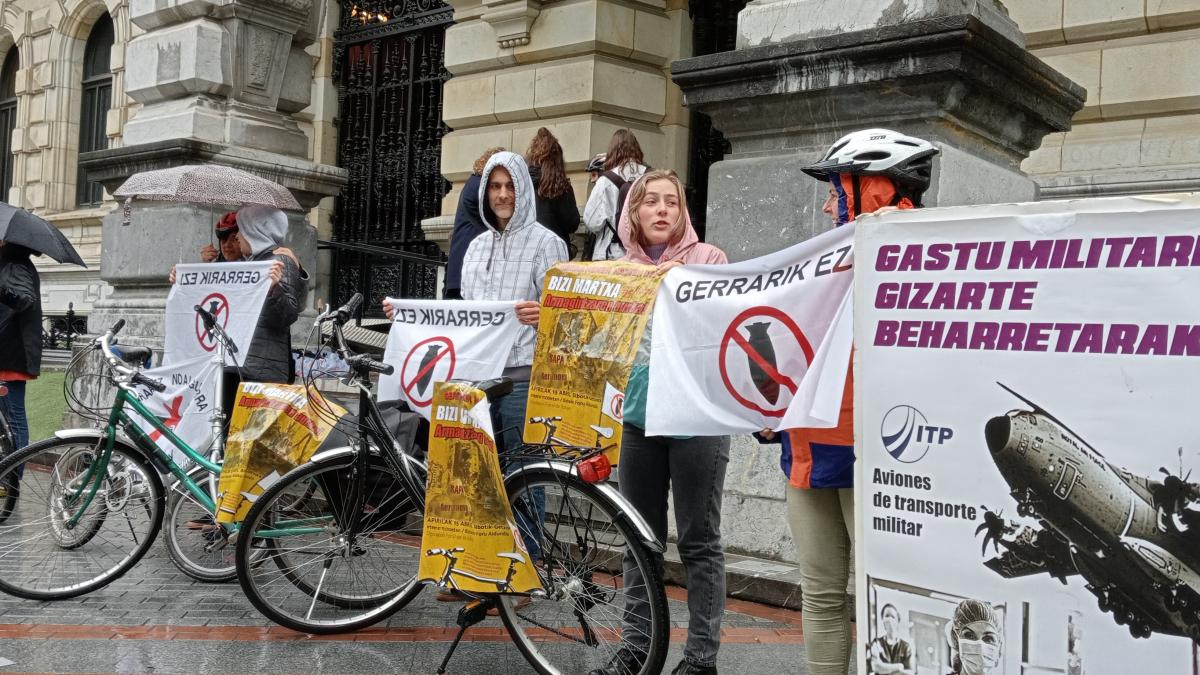
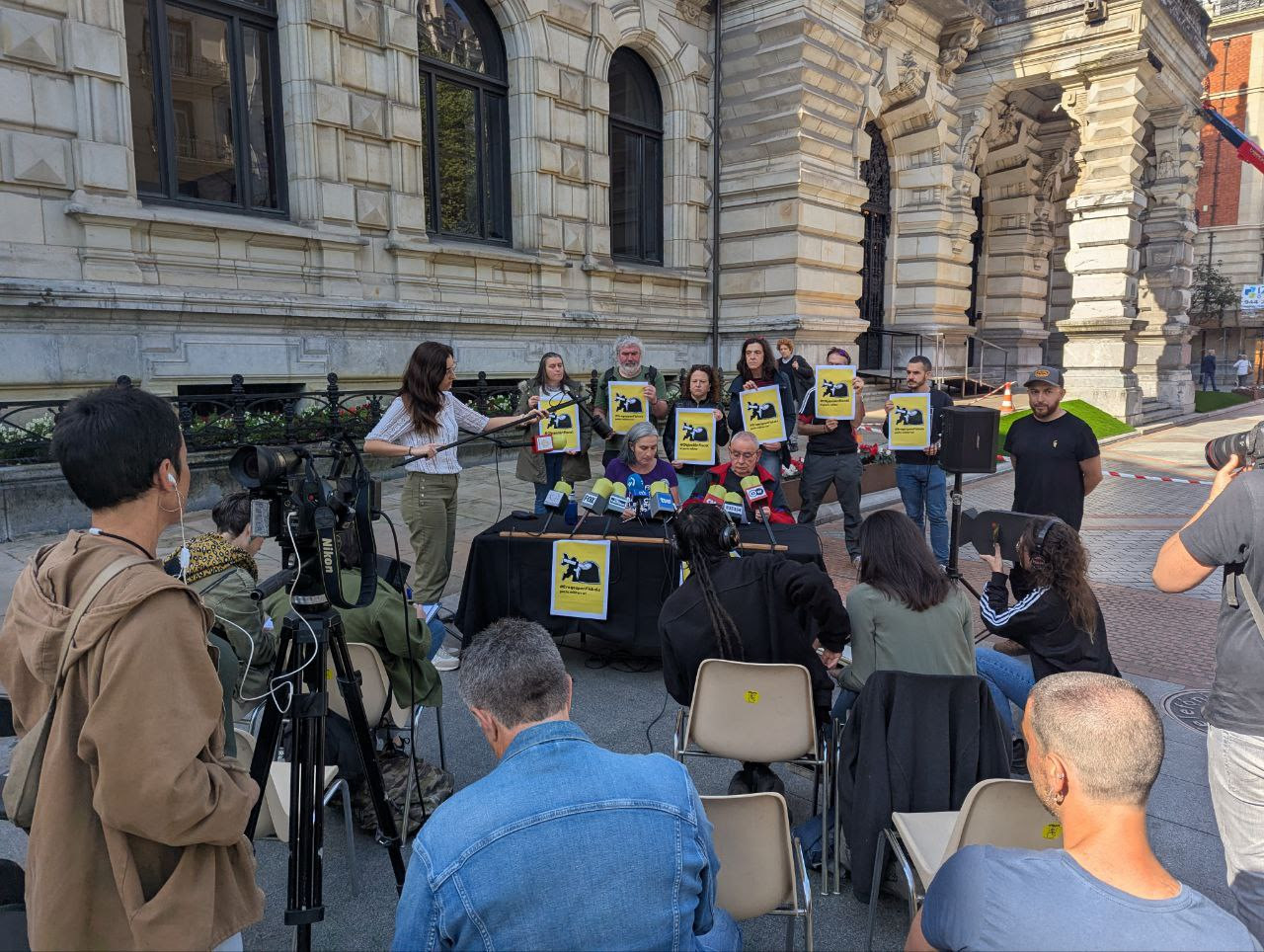
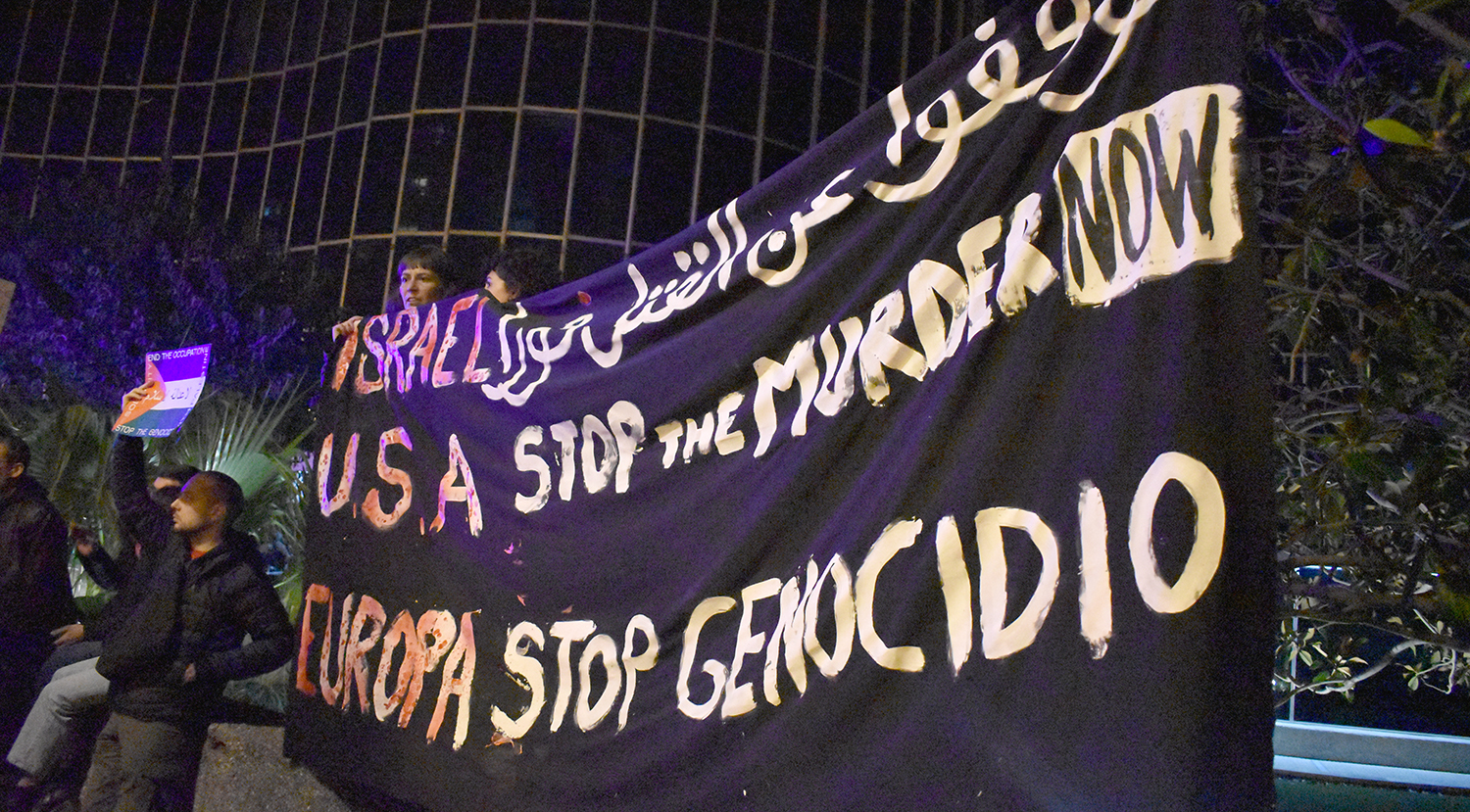
.jpg)




